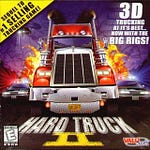Welcome, welcome. As with the last edition, you can now listen to this newsletter (and find it in Apple Podcasts, if you’d rather subscribe that way).

First, to kick things off, some self-promotion. My regular radio show Hot Sauce Radio can now be found on Souncloud which, tbh, is probably better than hosting on Mixcloud, where I was before. More people use it. Better on mobile, even if you don’t have the app. Anyways, the most recent show is a freestyle mix featuring Joni Mitchell, J Dilla, Arthur Russell, Bowie, Helado Negro, Steve Lacy, and a bunch more. I had a lot of fun putting it together. So go forth and listen to Hot Sauce Radio Episode #4.
Now onto the goods!
Prompt Twitter is, as defined by Brian Feldman, a Twitter trend that began in 2019 which are “slightly elaborate phrasings of mundane questions.”
One of the worst prompts I’ve seen recently is “reply w a baby pic that exudes the energy you have now” and it’s just people posting baby pics. Yeah, I would hope that someone posting a younger version of their own face might have some aesthetic consistency. It’s the same face! Yeesh.
Prompt Twitter is a perpetual motion machine of everyone asking everyone else to smell each others' farts. The obvious allure of it is that all parties gets what they want out of it. The prompter gets to seem authentic and interested in their audience (they are not) and the promptee gets permission to make the conversation all about themselves – “I wasn’t going to say it but someone asked!” Twitter famously prompts users with a generic “What’s happening?” but its users pick up the slack by creating specific activities for each other.
Prompt Twitter is tailor-made for #brands to jump in and feel very of-the-moment, patting themselves on the back for being of the cultural zeitgeist or knowing what’s, like, trending.
Brian has a good write-up of how thinking about Prompt Twitter can give you a good understanding of TikTok, and a certain segment of content that’s just “Prompt Twitter on steroids,” versus the actual compelling content, which is when users subvert the trending sounds and formats to end up somewhere new.
That’s some of what makes TikTok so good! (Related: I’ve ben featured—OK, quoted—in PR Week on how I’ve counseled brands on their TikTok strategy and dealt with how to measure it campaigns.)
So, there is a lot of fun to be had on TikTok. But there is a lot about TikTok that’s not good. I’m not even going to broach the national security, Trump vs. TikTok issues here.
TikTok has a unique ~culture~ and platform nuance that set it apart from your Instagrams of the world. That culture (and so much of internet culture, memes, and the like) often has a nasty bent to it, mirroring society and exacerbating the problems underneath. From WIRED’s September cover story written by Jason Parham, TikTok and the Evolution of Digital Blackface (yeah, like the cover of a paper magazine, y’all):
Over a period of two months, I heard from 29 Black creators who shared stories about muted posts, in-app harassment, and incidents of racism. They said the problems on the app are deeper and more widespread than simple isolated incidents. “Ever since I joined I've felt like the app is against me,” one told me. Another added, “It's disgusting how much they have allowed to go unchecked.” Together, their experiences belie the perception of TikTok as an app of joy and creativity, revealing instead a place tangled up in an ancient pain—a site of blurred visions and youthful ignorances, where flattery quickly turns into mockery, mockery into theft, and theft into something altogether more disturbing.
The quickest route to TikTok stardom (for white creators/influencers)? Digital blackface. Copy Black culture, Black cultural expression, Black chart-toppers, Black language. This is not unique to TikTok but might be more pronounced than on other platforms, and it can be so personal, given that sounds of an individual Black person—their voice, their music—underpins viral content for white people.
But digital blackface proliferates in ways beyond “platforms.” Reaction GIFs are one of the common uses of digital blackface, for example.
So: TikTok as a cultural force and a platform of #GoodContent in the year of our lord 2020? Yeah, not necessarily. Well, I mean, look. It’s not just TikTok. Writing in Noema, UCLA associate professor Safiya Noble lays bare how big tech has failed to improve humanity, brought further into light by COVID-19.
In short, instead of being partners in building the public good, Big Tech continues to profit from its erosion. Rather than contribute to the public coffers so that we can fund the public institutions we so desperately need to support, the titans of Big Tech are trying to come to the rescue through philanthropy and expressions of personal goodwill, making private donations at a tiny fraction of their personal wealth into the charitable and non-governmental organizations of their choosing. But these kinds of private drops into the desperately under-funded public pool, in exchange for eschewing the kind of tax responsibilities that working-people face, further erodes coordination and fair distributions of power and resources.
OK, in other news, the NBA appears to have figured out how to do sports during a pandemic, but it seems like a pretty non-replicable solution for other leagues or sports to do. One thing for certain: Greg, lifelong Dallas Mavs fan, is pretty excited to see Luka and KP suit up and SHOCK THE WORLD in the playoffs.
(Look: Pistons first-and-foremost for life, but I have to have one new sports team that I’m a Dallas resident and it sure isn’t going to be some of the other teams down here.)
Thanks for reading and/or listening and I’ll be back soon, I promise. Love you all.
Greg










